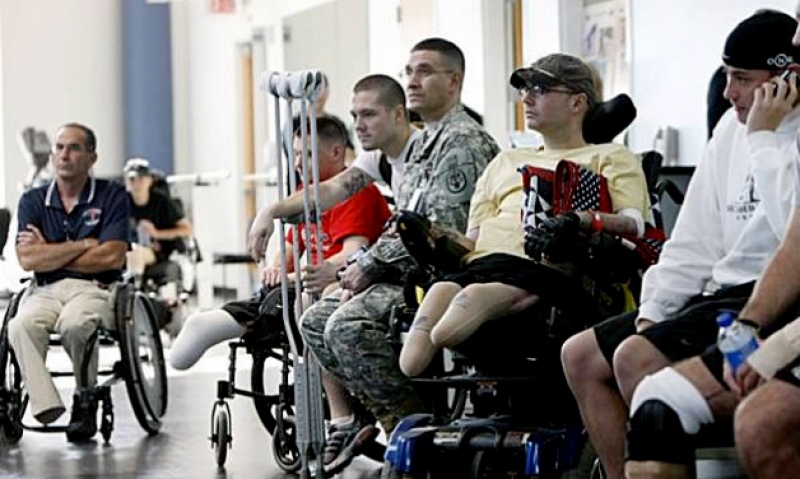
The American Legion submitted written testimony to a recent House hearing on VA's ability to provide quality mental health care to America's veterans.
On Feb. 1, the Department of Veterans Affairs (VA) released a study that reported an average of 22 veterans committed suicide every day in 2010. And on Feb. 13, the House Committee on Veterans’ Affairs held a hearing on how to overcome barriers that stand in the way of providing high-quality mental health care to America’s veterans.
The American Legion’s Veterans Affairs & Rehabilitation Commission submitted written testimony to the House hearing, questioning "whether VA’s mental health care system is equipped to meet the demands of the veteran population it was created to serve. The VA may offer veterans the best mental health care option available, but if we face difficult barriers to access that care, then veterans are not really being served."
The Legion’s testimony pointed out that VA has nearly doubled its mental health-care staff since 2005, to more than 20,000 providers; this reflects the greater influx of veterans who need psychiatric services. However, of the more than 1.5 million veterans that have left active duty in the past decade, nearly 690,000 of them have never been treated or evaluated by VA.
The Legion is concerned about veterans "who are slipping through the cracks, unable to access the health-care system they have earned through their service." Compounding this concern is the recent VA and Department of Defense (DoD) decision to abandon their efforts to create a single electronic health record system. With veterans waiting an average of 374 days for Medical Evaluation Board and Physical Evaluation Board claims, and an average of 257 days for VA claims, "veterans need faster processing, which will only come from a smooth transition of records. These records are needed for decisions, and the lack of a shareable record is hurting veterans."
And while DoD is helping to meet the mental health needs of servicemembers and veterans by establishing pro bono programs for post-traumatic stress disorder and other mental disabilities, testimony from a Nov. 30, 2011, Senate Committee on Veterans’ Affairs hearing "made it clear that VA was not working with nonprofit organizations to minimize patient wait-times for appointments, thus exacerbating the problem of the veteran’s ability to receive care in a timely manner."
Meanwhile, President Obama issued an executive order on Aug. 31, 2012, calling on VA to provide an additional 800 peer-to-peer counselors. This kind of counseling has proven effective in veterans’ rehabilitation, exemplified by Vet Center programs nationwide. The Legion encourages VA Secretary Eric Shinseki to use returning servicemembers "for positions as peer support specialists in the effort to provide treatment, support services and readjustment counseling" for veterans who need those services.
- Veterans Healthcare

